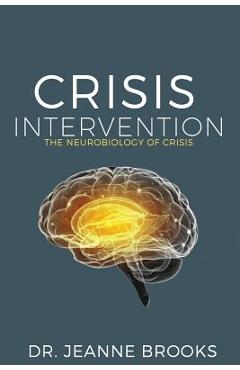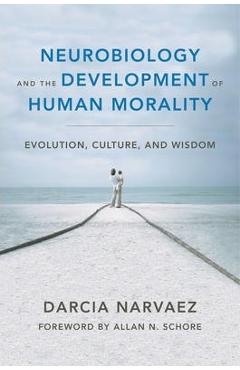The Neurobiology of Attachment-Focused Therapy: Enhancing Connection & Trust in the Treatment of Children & Adolescents, Hardcover/Jonathan Baylin

Detalii The Neurobiology of Attachment-Focused Therapy:
elefant.ro
194.99 Lei
Foreign Books
W. W. Norton & Company
The Neurobiology of Attachment-Focused Therapy: - Disponibil la elefant.ro
Pe YEO găsești The Neurobiology of Attachment-Focused Therapy: de la W. W. Norton & Company, în categoria Foreign Books.
Indiferent de nevoile tale, The Neurobiology of Attachment-Focused Therapy: Enhancing Connection & Trust in the Treatment of Children & Adolescents, Hardcover/Jonathan Baylin din categoria Foreign Books îți poate aduce un echilibru perfect între calitate și preț, cu avantaje practice și moderne.
Preț: 194.99 Lei
Caracteristicile produsului The Neurobiology of Attachment-Focused Therapy:
- Brand: W. W. Norton & Company
- Categoria: Foreign Books
- Magazin: elefant.ro
- Ultima actualizare: 28-10-2025 01:22:05
Comandă The Neurobiology of Attachment-Focused Therapy: Online, Simplu și Rapid
Prin intermediul platformei YEO, poți comanda The Neurobiology of Attachment-Focused Therapy: de la elefant.ro rapid și în siguranță. Bucură-te de o experiență de cumpărături online optimizată și descoperă cele mai bune oferte actualizate constant.
Descriere magazin:
Contributor(s): Author: Jonathan Baylin Author: Daniel A. Hughes How can therapists and caregivers help maltreated children recover what they were born with: the potential to experience the safety, comfort, and joy of having trustworthy, loving adults in their lives? This groundbreaking book explores, for the first time, how the attachment-focused family therapy model can respond to this question at a neural level. It is a rich, accessible investigation of the brain science of early childhood and developmental trauma. Each chapter offers clinicians new insights--and powerful new methods--to help neglected and insecurely attached children regain a sense of safety and security with caring adults. Throughout, vibrant clinical vignettes drawn from the authors\' own experience illustrate how informed clinical processes can promote positive change. Authors Baylin and Hughes have collaborated for many years on the treatment of maltreated children and their caregivers. Both experienced psychologists, their shared project has bee the development of the science-based model of attachment-focused therapy in this book--a model that links clinical interventions to the crucial underlying processes of trust, mistrust, and trust building--helping children learn to trust caregivers and caregivers to be the "trust builders" these children need. The book begins by explaining the neurobiology of blocked trust, using the latest social neuroscience to show how the child\'s early development gets channeled into a core strategy of defensive living. Subsequent chapters address, among other valuable subjects, how new research on behavioral epigenetics has shown ways that highly stressful early life experiences affect brain development through patterns of gene expression, adapting the child\'s brain for mistrust rather than trust, and what it means for treatment approaches. Finally, readers will learn what goes on in the child\'s brain during attachment-focused therapy, honing in on the dyadic processes of adult-child interaction that seem to embody the core "mechanisms of change": elements of attachment-focused interventions that target the child\'s defensive brain, calm this system, and reopen the child\'s potential to learn from new experiences with caring adults, and that it is safe to depend upon them. If trust is to develop and care is to be restored, clinicians need to know what prevents the development of trust in the first place, particularly when a child is living in an environment of good care for a long period of time. What do abuse and neglect do to the development of children\'s brains that makes it so difficult for them to trust adults who are so different from those who hurt them? This book presents a brain-based understanding that professionals can apply to answering these questions and encouraging the development of healthy trust.

Produse asemănătoare

Crisis Intervention: The Neurobiology of Crisis - Jeanne Brooks
![]() libris.ro
libris.ro
Actualizat in 28/10/2025
118.96 Lei

We Know It When We See It. What the Neurobiology of Vision Tells Us About How We Think, Hardback/Richard Masland
![]() elefant.ro
elefant.ro
Actualizat in 28/10/2025
122.99 Lei

Neurobiology and the Development of Human Morality: Evolution, Culture, and Wisdom - Darcia Narvaez
![]() libris.ro
libris.ro
Actualizat in 28/10/2025
327.36 Lei

Touch: The Neurobiology of Health, Healing, and Human Connection - Psy D. Michael Changaris
![]() libris.ro
libris.ro
Actualizat in 28/10/2025
178.5 Lei
Produse marca W. W. Norton & Company

Emotional Neglect and the Adult in Therapy: Lifelong Consequences to a Lack of Early Attunement, Hardcover/Kathrin A. Stauffer
![]() elefant.ro
elefant.ro
Actualizat in 28/10/2025
201.99 Lei

The Pocket Guide to Neuroscience for Clinicians, Paperback/Louis Cozolino
![]() elefant.ro
elefant.ro
Actualizat in 28/10/2025
173.99 Lei

Reality: Virtual Worlds and the Problems of Philosophy, Hardcover/David J. Chalmers
![]() elefant.ro
elefant.ro
Actualizat in 28/10/2025
187.99 Lei

Experience on Demand: What Virtual Reality Is, How It Works, and What It Can Do, Paperback/Jeremy Bailenson
![]() elefant.ro
elefant.ro
Actualizat in 28/10/2025
93.99 Lei

Sprout Lands: Tending the Endless Gift of Trees, Paperback/William Bryant Logan
![]() elefant.ro
elefant.ro
Actualizat in 28/10/2025
100.99 Lei

